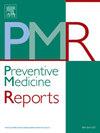印度移动卫生技术干预措施改善高血压和糖尿病管理和控制的有效性——一项系统综述
IF 2.4
3区 医学
Q2 PUBLIC, ENVIRONMENTAL & OCCUPATIONAL HEALTH
引用次数: 0
摘要
在印度,由于快速的城市化、生活方式的改变和人口老龄化,高血压和糖尿病在过去20年里已经成为发病率和死亡率的主要原因。本研究的目的是评估移动医疗(mHealth)技术干预对印度高血压和糖尿病控制的影响。方法综合检索PubMed、Cochrane Library、Dimensions和谷歌Scholar等网站,检索在印度进行的从研究开始到2024年10月15日发表的研究。检索到的研究评估了移动健康技术干预对印度高血压和糖尿病控制的影响。人群,干预,比较,结果,&;研究设计(PICOS)框架概述了该综述的关键要素。本系统评价使用二手数据,因此不需要伦理批准。结果782篇潜在文献中,8篇符合纳入标准。与对照组相比,采用移动健康技术的干预措施显著改善了干预组的血压、糖化血红蛋白(HbA1c)和空腹血糖(FBG)。此外,数字健康干预措施,如基于短信的教育和移动健康平台,大大提高了治疗依从性和患者满意度。由于慢性病负担日益加重,将移动医疗干预纳入常规医疗保健可能是改善健康结果的一种改变游戏规则的策略,特别是在资源有限和无法获得传统医疗的地区。该研究为未来的研究提供了基础,可以进一步制定和实施管理和控制糖尿病和高血压的数字健康战略。本文章由计算机程序翻译,如有差异,请以英文原文为准。
Effectiveness of mobile health technology-enabled interventions to improve management and control of hypertension and diabetes in India- a systematic review
Objectives
In India, due to rapid urbanization, lifestyle changes, and the aging of the population, hypertension and diabetes have become the leading causes of morbidity and mortality over the past 20 years. The aim of this study is to evaluate the impact of mobile health (mHealth) technology interventions on hypertension and diabetes control in India.
Methods
A comprehensive search in PubMed, Cochrane Library, Dimensions, and Google Scholar was conducted for studies conducted in India and published from inception to October 15th, 2024. The retrieved studies assessed the impact of mHealth technology interventions on hypertension and diabetes control in India. The Population, Intervention, Comparator, Outcomes, & Study Design (PICOS) framework outlined the key elements of the review. This systematic review uses secondary data, so no ethical approval is needed.
Results
Of 782 potential articles assessed, eight met the inclusion criteria. mHealth technology-enabled Interventions were associated with significantly improved blood pressure, glycated hemoglobin (HbA1c) and Fasting Blood Glucose (FBG) in the intervention group compared to the control group. Additionally, digital health interventions, such as SMS-based education and mHealth platforms, greatly improve treatment adherence and patient satisfaction.
Conclusion
Due to an increasing burden of chronic diseases, incorporating mHealth interventions in routine healthcare could be a game-changing strategy toward improved health outcomes, especially in areas with limited resources and access to traditional care. The study provides a basis on which future research can be done to develop further and implement digital health strategies for the management and control of diabetes and hypertension.
求助全文
通过发布文献求助,成功后即可免费获取论文全文。
去求助
来源期刊

Preventive Medicine Reports
Medicine-Public Health, Environmental and Occupational Health
CiteScore
3.90
自引率
0.00%
发文量
353
 求助内容:
求助内容: 应助结果提醒方式:
应助结果提醒方式:


